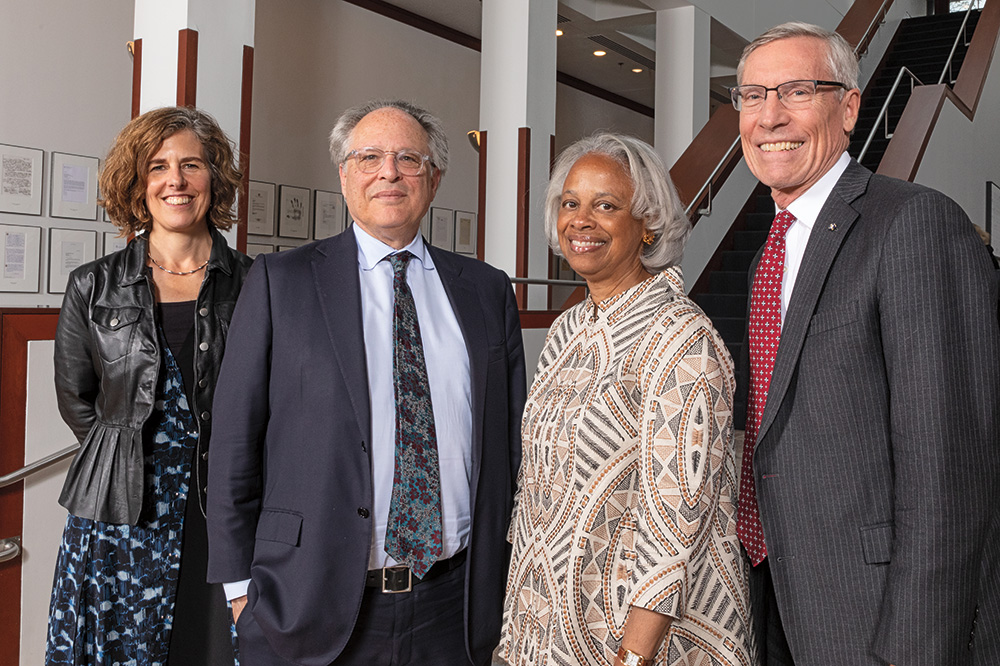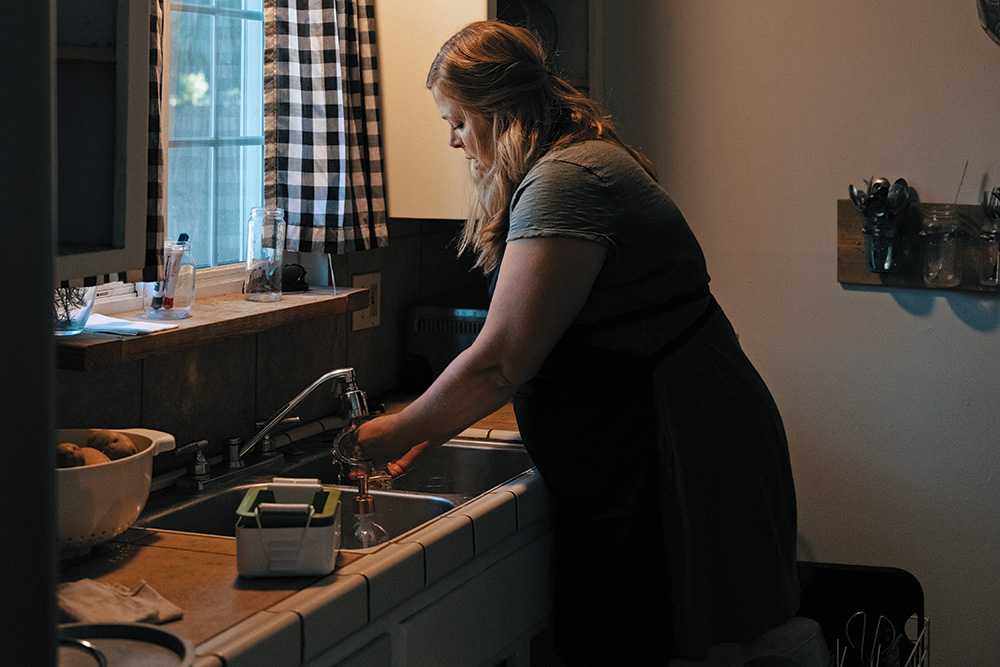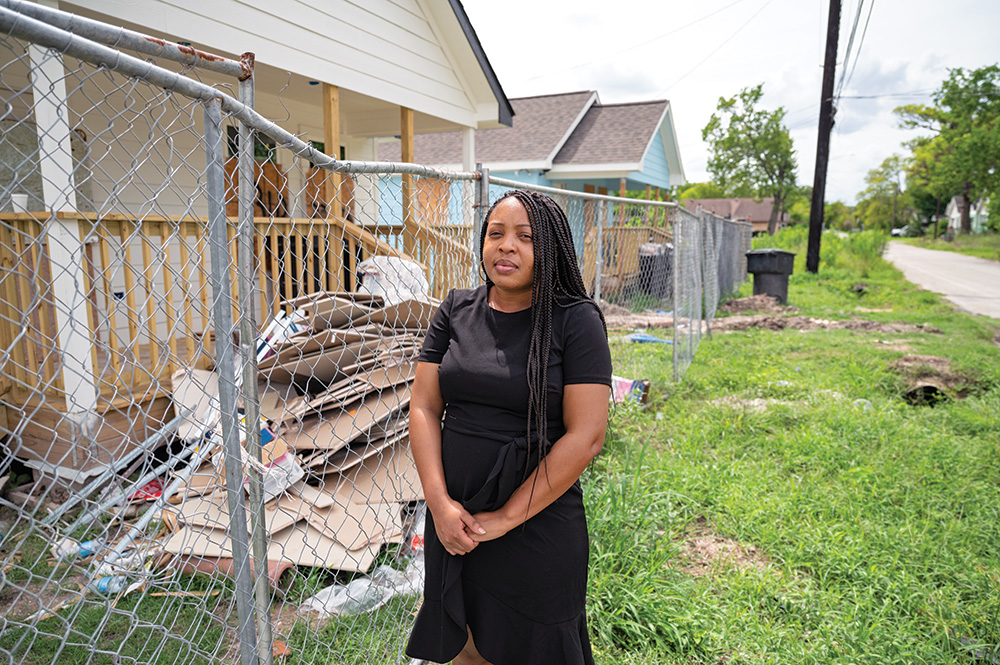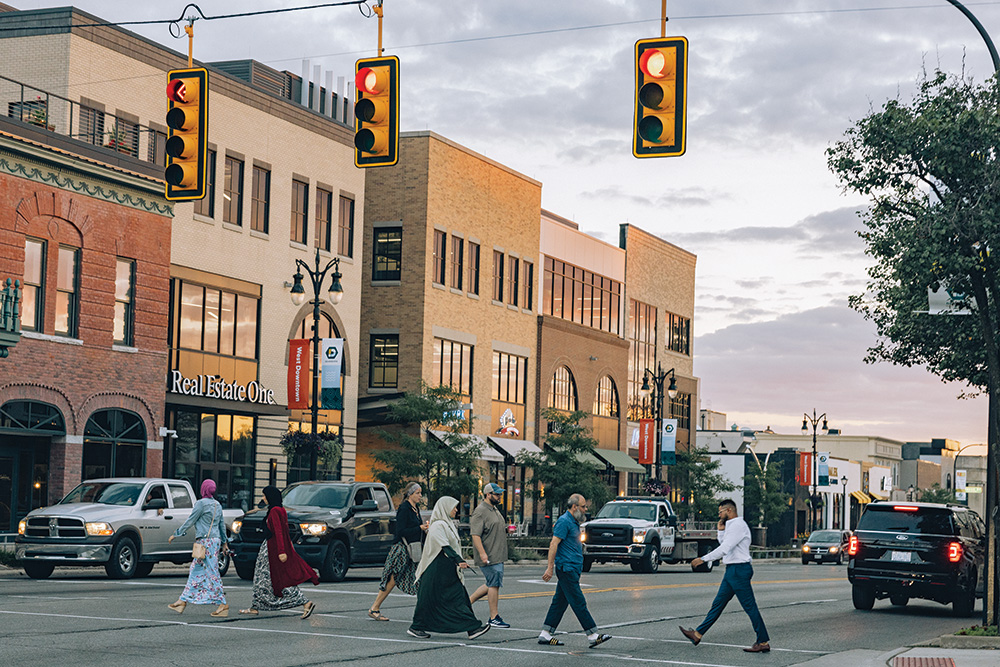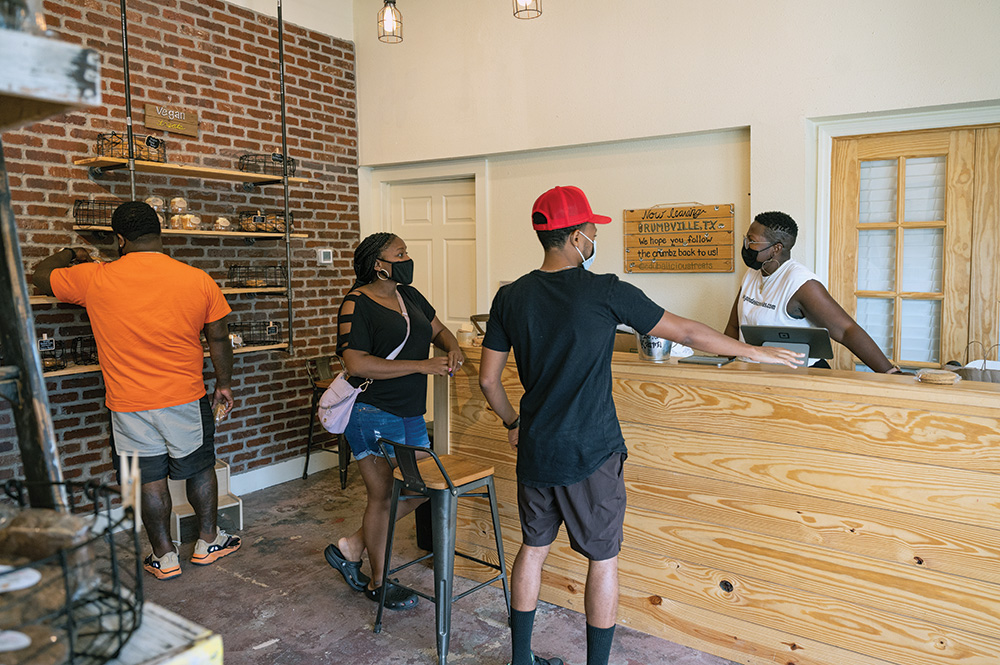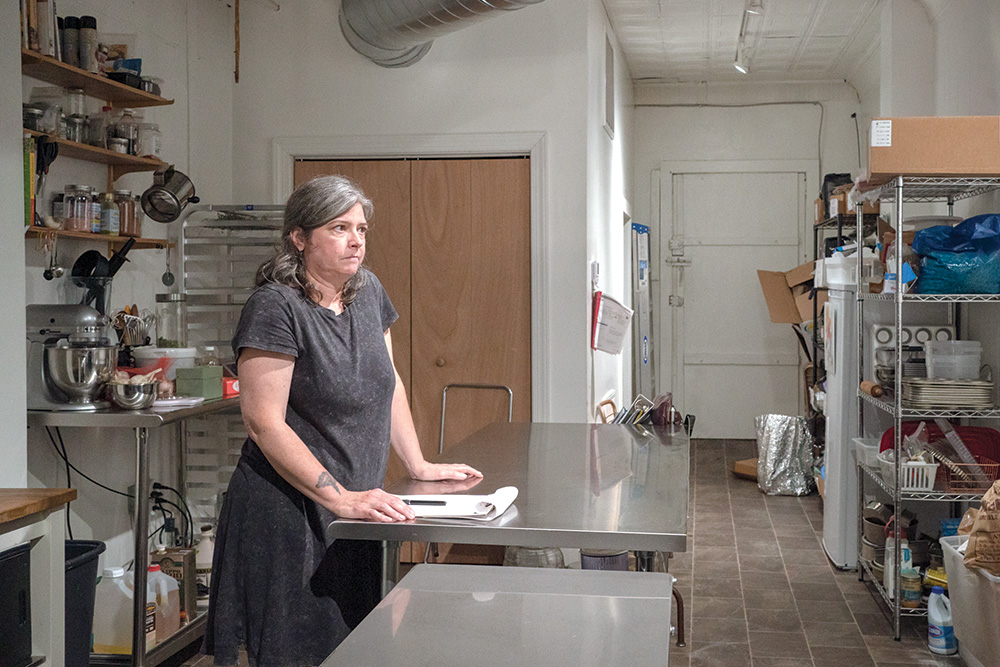Introduction
The story of the United States has always been one of continuing reinvention. That is the story of the American economy as well. The United States was an agricultural nation at its inception, then became an industrial one, then a diversified postindustrial one. At every stage, the nation’s political and economic systems were interconnected, each adjusting to changes in the other. The nation preserved its economic strength through depression and recession, through land wars, cold wars, and trade wars, and through the arrival of the microchip, the megabyte, and the machine-learning revolution.
Today, another adjustment is in order. Over the past several decades, the connection between growth and shared prosperity in the United States has not been strong enough. This period has produced a tremendous amount of progress and prosperity. But for many, it has also produced uncertainty, insecurity, and disaffection. Too many families cannot achieve the life they want despite their best efforts, too many communities have not benefited fully from national economic growth, and too many Americans believe the economy does not work for them. In a 2021 survey, 66 percent of American respondents felt that their nation’s economy needs major reforms, and just 6 percent felt it should remain unchanged.1 There is a widespread sense that more people should be able to partake in the nation’s prosperity.
Against this backdrop, the American Academy of Arts and Sciences launched the Commission on Reimagining Our Economy (CORE) in October 2021. The interdisciplinary and crosspartisan Commission comprises scholars, journalists, artists, and leaders from faith, labor, business, nonprofit, and philanthropic communities. The goal of the Commission is to identify policies, practices, and principles that can help make the nation’s economy work better for the American people. We undertake this effort not only for the sake of the nation’s economic future, but also for the future of its constitutional democracy and its institutions.2
A major area of concern for the Commission is the damage that the economy has done to American optimism. In recent polls, just 24 percent of Americans said they believed the nation was heading in the right direction, 55 percent were confident that today’s young people will have a better life than their parents, and 32 percent predicted that the nation’s economy will be stronger in 2050 than it is in 2023.3 There are many reasons for the prevalence of these views, and it is notable that when Americans are asked about their own personal situation, rather than that of the nation as a whole, their outlook is considerably sunnier.4 Nonetheless, widespread concerns about economic well-being threaten to tear at the fabric of American life. Those who feel they lack opportunity are prone to distrust political leaders, markets, institutions, and even their own neighbors. A 2019 survey of the United States and other countries found a strong connection between economic pessimism and democratic dissatisfaction. Recent research also suggests that the emotion that best predicts voters’ turn to populist political candidates is not anger but gloom—a sense of malaise and despair that can aggravate long-standing social tensions.5 When people feel constrained from achieving better lives, they are more likely to distrust the institutions that can help shape a better future for them and for the nation.
The Commission heard these sentiments in listening sessions held around the country. Speaking with Americans from different walks of life and from across the political spectrum, we heard that many people feel that greed is the main driver of the economy and that a small segment of the population prospers while others struggle to survive. Many people feel stuck in jobs that do not provide basic financial security, not to mention enough time to spend with their families. People believe there is not as much opportunity today as in the past. In some parts of the country, people feel they have been left out of the progress and promise of the high-tech economy. We heard a prevailing belief among young people that they cannot rely on the same path to an affordable college degree, stable employment, and homeownership that their parents took. Many people feel these problems are at least partly the fault of elected leaders and employers who have been unresponsive to the concerns of ordinary Americans.
Such sentiments are rooted in people’s lived experience. In 2022, poverty rates increased nearly 5 percent and rates of child poverty nearly doubled, as government programs and tax credits enacted during the pandemic expired.6 Many Americans’ expectations for economic life took hold in the decades following World War II, a time of widespread upward mobility and general—though far from universal—prosperity. Since the 1970s, a significant portion of the country’s traditional industrial base has shut down or moved offshore, leaving some parts of the country behind economically, and reducing the number of paths to better futures for residents. As of 2019, the wealthiest 10 percent of households held over 70 percent of all household wealth.7 Additionally, the share of the economy that goes to workers in the form of wages has fallen.8 Homeownership affordability, too, is at its lowest levels since 2007.9 Based on cost of living estimates collected by MIT’s Living Wage Calculator, in nearly every American county, a typical wage is not considered livable for a household with one adult and two children.10 These trends have disproportionally hurt nonwhite Americans and those without a college degree who live outside the major metropolitan areas. The Great Recession that followed the 2008 financial crisis hit these Americans and these communities especially hard.
Notwithstanding these challenges, the economic situation of ordinary working Americans has been improving. Over the last few years—not including the eighteen months after the onset of the COVID-19 pandemic—the nation has maintained a low unemployment rate. The corresponding tight labor markets have increased wages for low-income workers. One welcome result has been a lessening in inequality: Income growth for the bottom half of the distribution has outpaced growth for the top 10 percent, and gender and racial wealth gaps have also declined.11 Additionally, notwithstanding the spike in 2022, rates of child poverty fell nearly 44 percent between 1993 and 2019, and then declined further thanks in part to COVID-era government programs.12 This good news demands close attention. Its causes offer insight into which policies can help create the kind of economy that our Commission was created to reimagine.
In our listening sessions, the Commission did not hear only about challenges and struggles. We also heard about resilience, hope, and opportunity. We heard stories of determination, of individuals fighting for dignity and to make life better for themselves and their children. The participants in our listening sessions shared with us their belief in the value of hard work and their hope that their efforts will pay off. We spoke to people across the country who are working to strengthen their hometowns so their children will not have to leave to find opportunities. We also heard about solutions. People have ideas about how to make things better, and they want to be empowered to make changes in their workplaces, in their communities, and in their nations. When they want help from the government, they make clear they want help finding opportunity: to make it easier for them to work, to take care of their families, and ultimately to get by on their own.
Drawing on these conversations and on more than two years of deliberations among the Commission’s members, Advancing a People-First Economy offers a range of ideas to address the most pressing economic problems that are facing the American people and eroding their faith in the nation’s democratic system. The recommendations differ in subject matter, sweep, and scale. But we believe that, together, they offer a vision of what the American economy could become and of how the country could begin moving toward that vision.
At the heart of our analysis is the idea that too much attention is devoted to how the economy is doing and not enough is devoted to how Americans are doing. This shift in framing is significant. Economic markets are a powerful and effective tool for creating a fair, prosperous, and just society. But they should exist to serve people, not the other way around. A healthy economy is one that provides everyone with a meaningful chance at mobility and generates prosperity that is broadly shared. An economy should be judged not only on its efficiency and productivity but on its ability to improve people’s well-being. In our view, well-being encompasses people’s physical health, financial stability, political and social agency, and overall satisfaction with the state and direction of their lives.13
Placing people at the forefront of economic analysis entails emphasizing parts of American life that are often ignored. Consider the way the economy is measured. The most common economic metrics measure growth. The Dow Jones Industrial Average and other stock indexes are often used as proxies for assessing the state of the economy. Gross Domestic Product (GDP) is the go-to statistic for comparing national economies and for assessing whether a country is in a period of growth, stagnation, or recession.
Metrics such as GDP and the Dow are often used to understand our economy as a whole. Both indicators serve important functions. However, while generally seen as objective, they contain judgments about what is worth measuring and whose welfare is important. Neither of these familiar metrics provides sufficient insight into Americans’ well-being and their relationships to the institutions that structure their lives. Roughly 40 percent of households—and nearly 60 percent of Americans under age thirty—do not own stock, including indirect ownership through retirement plans.14 Broad measurements like GDP reveal very little about areas or communities that are not keeping pace with the progress seen in other parts of the country. Indicators that do not offer insight into differences along lines of race, gender, or ethnicity risk overlooking long-standing and ongoing disparities. As a result, GDP, the Dow, and similar narrow measurements can obscure as well as reveal. Their prevalence in the nation’s public conversation is a symptom of a prioritization of the well-being of the economy over the well-being of the American people.
When we began our work in 2021, the Commission set out to identify ways to encourage the nation to focus its attention on people and their well-being. To do so, we sought first to identify a concrete set of values—aspirations for what we believe should be the central tenets of a people-focused economy. We were guided in this effort by our listening sessions, in which we heard remarkably consistent hopes and concerns articulated by different groups in different parts of the country. The Commission agreed on three values that sit at the center of our work:
SECURITY: The ability to withstand economic instability and to meet one’s needs sustainably and with dignity.
OPPORTUNITY AND MOBILITY: The realistic possibility of having opportunities to advance economically through education and work, no matter where one begins in life.
DEMOCRACY: The ability to exercise power and voice in decision-making in one’s workplace and political life, both locally and nationally.
These three values are intertwined, and the connections among them inform a central conclusion of the Commission’s work. Financial security, opportunity, and mobility are crucial components of well-being. They are also vital for fostering trust. When people feel secure and feel that they have a chance to improve their future, they are more inclined to believe that the nation’s democratic and economic system is fair. Perceptions of fairness, and the reality of fairness, nurture trust in institutions, increase social cohesion and civic participation, and lead to better political representation. These, in turn, foster policy outcomes that advance opportunity and security. Such outcomes then engender more faith in institutions, creating a feedback loop of economic well-being and institutional trust. Conversely, insecurity and lack of opportunity perpetuate unfairness, perceived and real. This leads to distrust, disengagement, and the erosion of the democratic institutions that can help provide security and opportunity.
A twist on a famed social psychology experiment offers evidence of how broken trust can worsen economic decision-making. Children were administered the marshmallow test, a test of grit and patience, in which they are offered a marshmallow with the choice of eating it immediately or waiting for an experimenter to deliver an extra marshmallow. In this iteration, children were first primed to trust or distrust the experimenter. Before the marshmallow test, the children were given art supplies. The experimenter then told the children they could use these supplies or could wait until the experimenter returned with even better materials. For half of the children, the experimenter did in fact return with the premium crayons and stickers. For the other half, though, the experimenter returned and apologetically explained that there were no better supplies after all. The experimenter then administered the marshmallow test. Those children who received the promised supplies were significantly more likely to wait than those who did not.15 This reaction seems reasonable. Children who had been conditioned not to trust the experimenter had little reason to believe that waiting would yield an additional marshmallow, whereas those who found the system to be fair were happy to delay gratification for the future reward they were sure would come. When promises are broken, when institutions act unfairly, it is easy to lose trust. If people feel that the economy is not delivering for them, is it any wonder that they lose faith it ever will?
This report is the Commission’s effort to identify proposals that will make a difference in peoples’ lives and ultimately help foster trust that the nation’s economy and democracy work for all Americans. To do so, we identified specific goals for the American political economy that represent concrete embodiments of the Commission’s values:
- All Americans should have a foundation of financial sufficiency that covers their basic needs.
- Americans who work forty hours a week should be able to support themselves and their families and enjoy a decent life.
- All Americans, regardless of their race, gender, ethnicity, or the circumstances of their birth, should have the chance to achieve a better life.
- Every part of the country should have a fair chance to benefit from national economic growth and technological progress.
- The marketplace should be structured to promote and protect fair competition, and anticompetitive behaviors should be addressed.
- Americans should feel a sense of common purpose and should have a voice that influences the political institutions that shape the nation and their lives.
To fulfill these goals, those who have the ability to contribute to American society—particularly through work—must do so. Work not only provides people with a chance at a better life; it is also vital for assuring basic sufficiency for every person. Work matters both to individuals and families, as well as to communities, including the national community. It is part of what Americans owe one another. Achieving the Commission’s goals for the economy cannot be done without acknowledging that a commitment to work is a mutual obligation. This ethos of responsibility undergirds an economy that embodies the Commission’s values of security, opportunity and mobility, and democracy.
The Commission has taken on a very large area of study. A great many potential policies and reforms could address our concerns. Advancing a People-First Economy offers fifteen actionable recommendations that have real promise to address some of the biggest barriers facing Americans today and to engender broad agreement. Some are ideas conceived by members of this Commission, some are proposals that deserve additional development, and some are already on their way to being enacted. We are proud to be able to take part in what we recognize is a broad, expanding, and ongoing conversation about the future of the American economy.
The Commission began its work with a list of over five hundred potential recommendations, many of which emerged from our listening sessions. Guided by our values, by our goals, and by what we heard around the country, we deliberated. From the start, we agreed to advance only those recommendations that could receive approval across our Commission. By design, the Commission has members who have a wide range of backgrounds, disciplines, and political beliefs. In our work, we have welcomed the variety of expertise and opinion among us, as well as the discipline necessary to achieve consensus. We were able to narrow our list to just over a dozen proposals that embody our shared values, that have the potential to have a significant effect, and that we could broadly agree on. While several members of the Commission were skeptical of or reluctant to endorse certain recommendations, all members of the Commission were able to approve the slate of recommendations as a whole in a spirit of collaboration and mutual respect. We offer this description of the Commission’s work as one example, even in polarized times, of the proposition that Americans with different points of view can find areas of cooperation and progress.
Our recommendations cover a broad array of issues that at first glance may appear dissimilar, from antitrust to rural broadband to private-sector upskilling to tax credits for local news organizations. This breadth is intentional. In our conversations around the country, the Americans we spoke with did not think in terms of any silver-bullet solution that would address all their challenges. They alerted us to a wide range of challenges requiring an even wider range of solutions. The makeup of our recommendations reflects Americans’ recognition that the solutions they need cut across different parts of their life and across every part of society.
The Commission’s approach is in keeping with the way systemic change has taken place over the course of American history. In hindsight, large changes in American policy and social life appear coherent and consistent: think of the Progressive Era’s reforms; the New Deal; the civil rights, environmental, and feminist movements; the period of economic deregulation in the 1970s and 1980s; even the drafting of the Constitution and the Bill of Rights. Their coherence is mainly retrospective. At the time, each great change was the amalgamated, messy result of many individual policies forged by members of different parties through compromise and negotiation. Rarely in American history has a tectonic shift been augured by a single speech, a single piece of legislation, or a single moment. More often, major reforms—reimaginings—occur through many changes, enacted from local communities to the federal government, whose connections to one another are clearer in hindsight than when they are unfolding. So it is with the reforms we offer here: they may be dissimilar on the surface, but they are all part of the same project to make the American economy work better for the people who make it work.
Most of our recommendations do not explicitly target any racial group. However, because socioeconomic status is so often tied to race and ethnicity—Black, Latino, and Native American households account for a disproportionate share of lower-income households—the Commission is confident that all of its proposals will improve outcomes for minorities. Some contemporary racial disparities stem from policies that had the explicit purpose of creating uneven playing fields for nonwhite households. Policies designed along purely socioeconomic lines are not sufficient to address all the barriers facing nonwhite Americans. Some of our recommendations explicitly take on historical race-based inequities with the aim of ensuring fair access to opportunity for all.
In the decades immediately following World War II, the country generally grew together economically, with gains distributed relatively evenly across the income distribution, albeit unequally along lines of race and gender. Then, beginning around 1980, the top income earners began pulling away from everyone else, which produced increasing disparities in wealth and income. Over the last ten years or so, wealth and income inequality leveled off and began to fall.16 But the inequality that exists today has, for some Americans, epitomized the unfairness of the political and economic system. Many members of our Commission share this view and are particularly concerned about the ways the rich use their fortunes to exert political power and to preserve their advantages in the marketplace. Other members of the Commission are less concerned about inequality, per se. In their view, what matters most is to secure the well-being of those at the bottom of the income distribution and to ensure overall, continuous economic growth that benefits everyone; whether the rich become richer at the same time is unimportant.
Reflecting these varied views, the Commission’s recommendations seek to do more than simply manage economic outcomes. Some of our proposals seek to remedy unfair market-generated disparities after the fact through taxes and government benefits, a process often called “redistribution.” In addition, we advocate for what is known as “predistribution”: structuring the economy in the hope that some of its most severe disruptions and unfairness might not occur in the first place, and would therefore not have to be remedied later.17 Predistributionary policies aim to spread economic opportunity and to create a more open, competitive economic playing field for individuals, firms, and industries.
Whether focused on redistribution or predistribution, the Commission’s recommendations ask for action from a variety of institutions. Some reforms can be accomplished through the private sector or civil society, especially community organizations. As has been the case at other times in the nation’s history, governments must also be involved in improving economic opportunities and outcomes for a wide swath of Americans. In some cases, government can help address market deficiencies by paying special attention to those who would otherwise fall through the cracks. In other cases, government itself is the cause of the problem. Federal, state, and local governments have adopted policies that are anticompetitive, disproportionately benefit the wealthy, deepen racial disparities, and generally contribute to the sense that the economy is rigged. Some of these policies were well-intentioned but are now outdated or have become counterproductive. No matter their origin, when policies create a barrier to security or opportunity, or when they fail those who need assistance, they should be reexamined and revised. Doing so will not only improve economic outcomes but will also help restore Americans’ faith in the nation’s institutions.
The Commission is guided by the idea that economic well-being fundamentally shapes the well-being of democracy, just as democratic well-being shapes the well-being of the economy. This report is not narrowly focused on the economy as an entity disconnected from other elements of society, but on what scholars call “political economy.” The concept of a political economy is rooted in the idea that markets do not automatically or naturally exist. They are created by people and operate according to rules, which are usually set by governments. As in sports, what one notices about markets are the achievements of the players, not the deliberations among the referees and rulemakers. Who would want to watch the National Basketball Association debate the dimensions of the court or the duration of the shot clock? But rules and their enforcement shape how, and how fairly, the game is played. Analysis of political economy includes not only supply and demand curves but also consideration of voice and representation. Political economy is not a new concept in the United States. It was articulated by the nation’s founders from the outset. As James Madison put it in 1787, “A landed interest, a manufacturing interest, a mercantile interest, a moneyed interest, with many lesser interests, grow up of necessity in civilized nations. . . . The regulation of these various and interfering interests forms the principal task of modern legislation.”18
Our recommendations to bolster economic opportunity and security, then, are aimed at identifying changes in the design and the administration of the institutions that are necessary to make those concepts a lived reality for most people. We offer solutions meant to foster Americans’ recognition that their future is intertwined with the fates of their neighbors, their community, and their country. Reducing unfairness in markets and in government policies can improve these types of civic connections. A political economy of fairness can foster a culture of fairness.
The enactment of many of the recommendations we propose would be more likely if changes were made to the fundamental structure of some of the nation’s democratic institutions. Many of the policies we seek to change—from occupational licensing laws to the tax code—have staunch defenders, individuals or firms who help put these laws in place or who benefit from their preservation. Overcoming these political barriers requires a democratic system that is designed to serve the common good and to protect the interests of the greatest number of people. Such a system requires empowered voters, robust and effective political representation, and a healthy civic culture. The specific mechanisms to create such a system are beyond the scope of our Commission’s work. These and other topics are the chief focus of a report that preceded ours, Our Common Purpose: Reinventing American Democracy for the 21st Century, prepared by the American Academy’s Commission on the Practice of Democratic Citizenship.19 Our Common Purpose acknowledges how economic factors can shape democratic behavior, but does not offer recommendations related to economic policy. Our work seeks to complement Our Common Purpose, picking up where that report left off. The Commission on Reimagining Our Economy considers the recommendations in Our Common Purpose as one possible roadmap to more representative political institutions and a more participatory civic life. We recognize that such changes to America’s democracy are vital preconditions for the implementation of many of the ideas in this report.
The Commission acknowledges that some of our recommendations would be expensive (and one would raise revenue through tax increases). In this report, we neither propose transformative increases in government spending nor lay out plans to pay for each of these policies. Yet keeping the U.S. national debt under control is an important component of building a strong, sustainable, equitable, and future-oriented economy that has the flexibility to respond vigorously to crises when needed. For some Commission members, this is a forefront consideration. Some members strongly support the principle of pay-as-you-go, meaning that new policies should be paid for in a way that supports economic growth, promotes fairness, and avoids increasing the national debt.
Following this introduction, Advancing a People-First Economy examines some of the specific problems facing the nation’s political economy. It then offers our recommendations, a list divided into three sections, corresponding to the Commission’s core values. In the first section, Security, our recommendations address precariousness through proposals focused on childcare and health care, housing, social safety nets, and banking. The second section, Opportunity and Mobility, includes recommendations to empower individuals to move up the job and income ladder, as well as proposals to enable left-behind communities to compete in the modern economy. In the final section, Democracy, we offer recommendations to foster trust and a sense that all Americans are in this together. We close with a brief conclusion that stresses the urgency of action to advance our proposals.
The Commission believes that creating a people-centered economy requires listening to the people whose lives the economy shapes. To arrive at our recommendations, we conducted interviews with issue-area experts, and we reviewed other studies and reports on how to reform the political economy. But we also wanted to hear from Americans whose voices are not typically central to policy discussions. We felt that any attempt to reimagine the economy should be rooted in the aspirations, struggles, and ideas of those for whom the economy is working well and those for whom it is falling short.
To highlight these voices, we embarked on two distinct projects that accompany our report. One was the aforementioned series of small group listening sessions held across the country. The Commission convened thirty-one of these conversations between February and September 2022, with participants from twenty different states. Though we did not endeavor to speak to a statistically representative sample of the country, we heard from a diverse range of people, including service, care, and airport workers; tribal leaders; teachers; small-business owners; community college students; and people experiencing homelessness and challenges to their mental and physical health. The sessions’ leaders asked participants to discuss what values are important to them, what they feel contributes to their well-being and the well-being of their communities, and one thing they would change if given the power to do so. Quotes from the listening sessions are featured throughout this report.
The second endeavor we undertook was a photojournalistic project. Over the course of our work, the Commission became concerned about a lack of images that truly reflect the state of the American economy. Stock images too often offer dramatized depictions of the very rich or the very poor, and photojournalism does not always capture the full range of its subjects’ economic experience. We wanted to look into the lives of Americans who are not on either end of the socioeconomic spectrum. To do this, the Commission engaged four photographers to capture day-to-day life in the American economy between July and September 2022, under the supervision of documentary photographer Nina Berman. The photographers were assigned to photograph people earning around the national median income ($70,784 for a household in 2021) in four communities, each of whose average income is slightly below the national mean. These communities differ by geography and community type:
Williamsport, Pennsylvania
A small city in the Northeast
Photographer: Caroline Gutman
Dearborn, Michigan
A suburb in the Midwest
Photographer: Maen Hammad
Third Ward, Houston, Texas
A neighborhood in a large city in the South
Photographer: Cindy Elizabeth
Tulare County, California
A rural area in the West
Photographer: Adam Perez
Each location has notable characteristics. Williamsport is well known as the home of the Little League World Series; Dearborn, a major suburb of Detroit, is the city with the largest percentage of Muslim residents in the country; Houston is the nation’s fourth-largest city and its historically Black Third Ward is at the forefront of the city’s changing landscape; and Tulare County is the second most productive agricultural county in the United States. Together, these four areas are not necessarily a representative sample of the nation, but they offer a useful cross section of communities and individuals around the center of the income distribution.
The photographs make for a powerful depiction of what it looks like to try to make it in America today. As with the listening sessions, the stories of the people in the photographs, communicated to us by the photographers, were vital in forging our recommendations. To conduct a people-focused examination of an economic and democratic system, charts, graphs, and regression analyses can only go so far. For the Commission, these images and the stories of their subjects put a human face to the problems we hope to solve. We include them in this report—and in a standalone photojournal, Faces of America: Getting By in Our Economy—because they embody the stakes of the issues at hand.20 What would a reimagined economy mean for the people in the photographs? For their communities? For the nation?
This report advocates bold, actionable, and informed proposals to ensure security, provide opportunity, and bolster civic life. The nation and its economy are constantly evolving, so no single limited set of proposals can resolve the large questions we are discussing here. We aim to add our voice to a vital and urgent conversation taking place all over the country about finding measures that will help Americans who were left out of previous economic transitions and equip them to weather unforeseen future transformations. None of our recommendations, either singly or altogether, amount to a cure-all. But we believe the breadth and attainability of our proposals will help generate other impactful, achievable ideas and will expand the collective imagination of what a fairer economy might look like. Bringing our values and our recommendations to life will require action by government, the private sector, philanthropy, and others. All these actors ought to do so in full awareness of the ways that economic problems affect more than just the economy. By bolstering security, by protecting opportunity and mobility, and by forging a healthier democratic culture, we can foster the trust that is vital for the well-being of the nation, its institutions, and its people.
A New Metric: The CORE Score
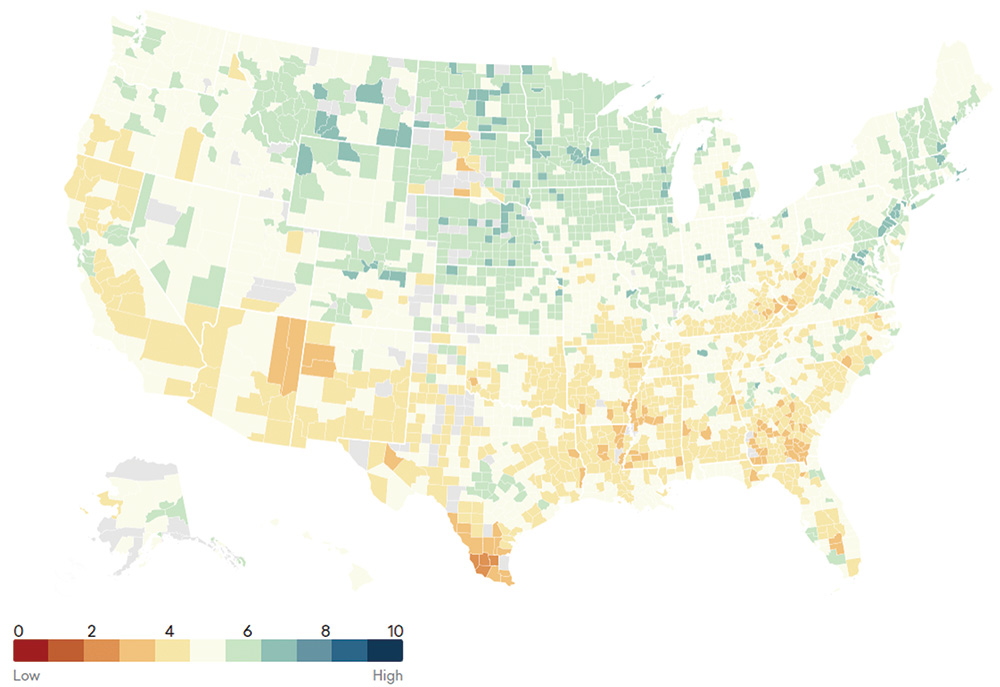
To reimagine the economy, the Commission first endeavored to reimagine the ways it is measured. To accompany this report, the Commission is releasing a new index measuring American well-being: the CORE Score. The CORE Score will allow for intercounty comparisons to measure geographic disparities, and to identify discrepancies in well-being between different parts of the country. The Score will also provide for intracounty comparisons, providing visibility into differences along lines of race/ethnicity, education, age, gender, and income within counties. The Score includes eleven measurements across four categories:
Category 1: Economic Security
- Financial durability (using a credit-bureau index of household wealth and income)
- Percentage of households without a financial housing burden (spend less than 30 percent of total income on housing)
- Share of households above the Supplemental Poverty Measure
Category 2: Economic Opportunity
- Prime age labor force participation rate
- Average education level
- Median wage growth
Category 3: Health
- Individual life expectancy
- Percentage under age sixty-five with health care coverage
Category 4: Political Voice
- Voter turnout
- Civic participation
- Quality of political representation
